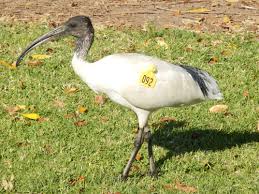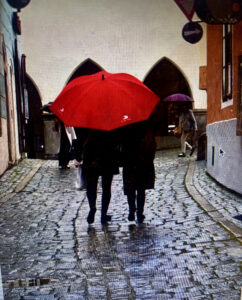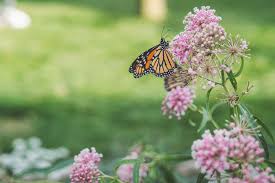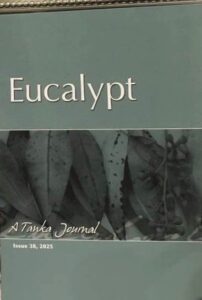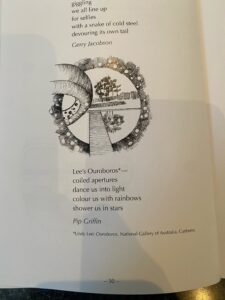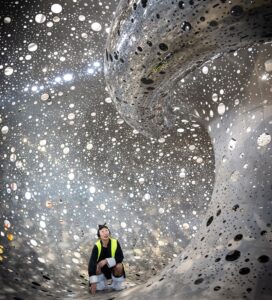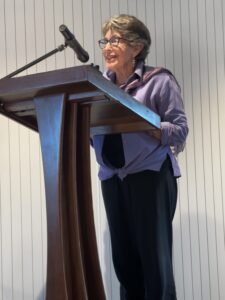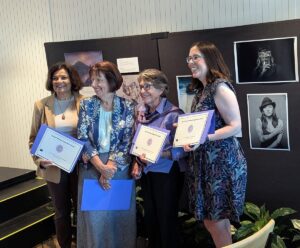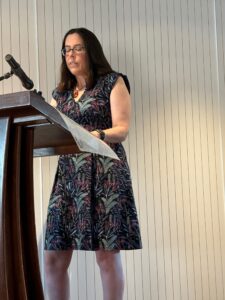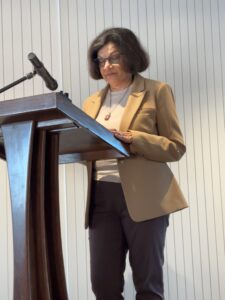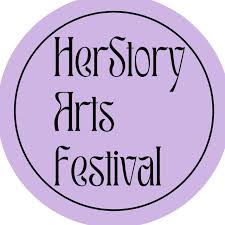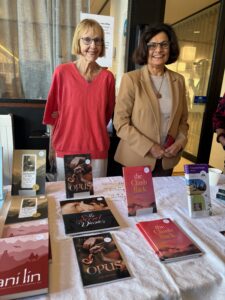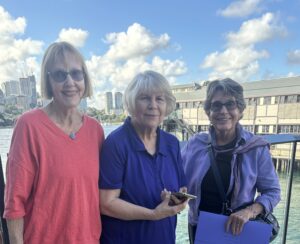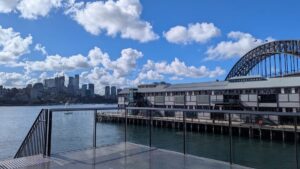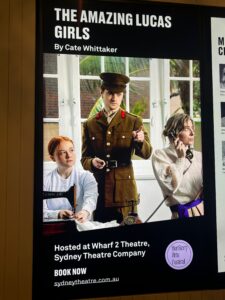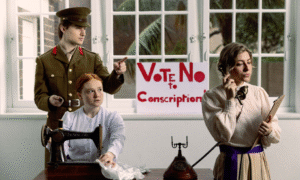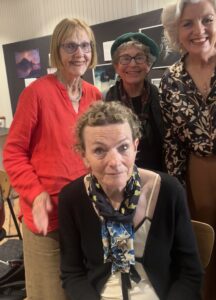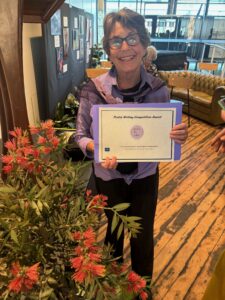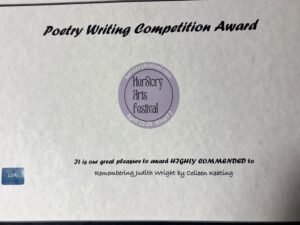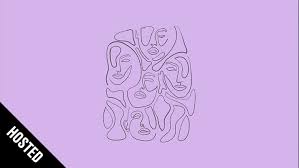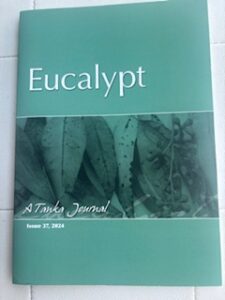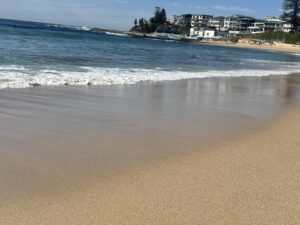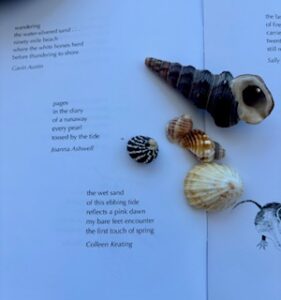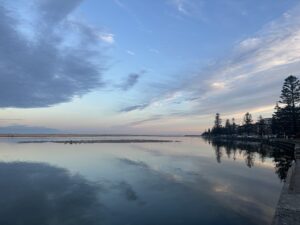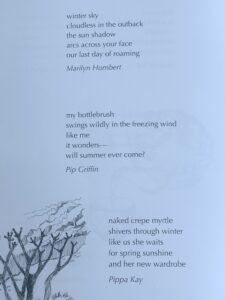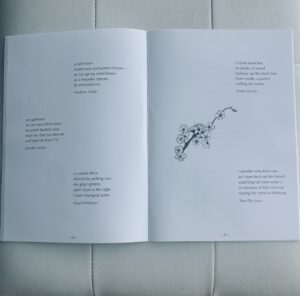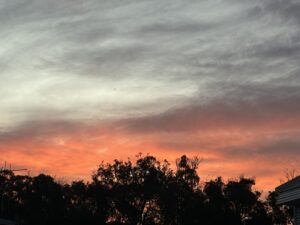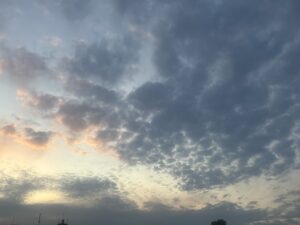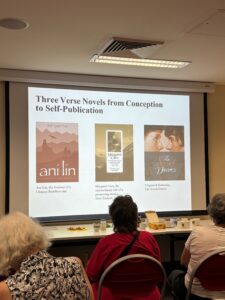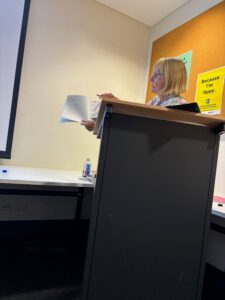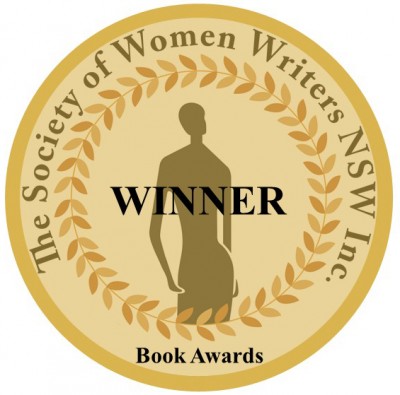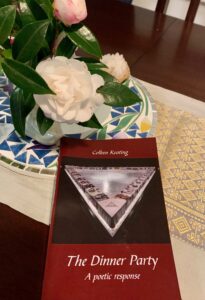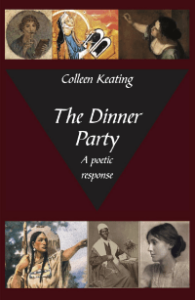
Very proudly I spoke at the NSW Society of Women Writers Monthly Meeting at the State Library to introduce my new poetry book The Dinner Party: A poetic Response, which responds to the 39 women claimed as part of a project to Restore Women to History by American artist Judy Chicago in her installation The Dinner party. A collection on the poetry of women!
I felt I was honouring the thousands of women on whose shoulders, we as woman today stand. Only 39 could be at the dinner table but not forgetting the many who went before them to make our lives as we have them today with the names of another 999 women’s names written on the white tiles below the table.
Not forgetting there is still much to be done as I hear the news this morning that another woman died at the hands of a man she knew . I think it is 4 this week so far and it gets a brief mention. My poem Counting Dead Women written a few years ago is sadly still relevant today.







RESTORING WOMEN TO HISTORY. My talk to introduce my new poetry book The Dinner Party: A poetic Response at the Society of Women Writers, NSW State library, July Meeting in Poetry Week
Ah we have gathered . . like Sappho the poet once said,
“The moon appeared in all her fullness and so the women took their place around the altar”
We could say,
The second Wednesday of the month came around and so we woman gathered to listen and tell our stories.
It is good to be with you today in Poetry week and to share with you a little about my new poetry book. The Dinner Party: a poetic response.
I came across the idea for the book while I was researching for my Hildegard book back in 2015 and I found reference to Hildegard in this amazing artistic installation by Judy Chicago which is a 1978 landmark permanent installation in the Brooklyn Museum in New York . . . an imaginary dinner party of women down the ages who had been ignored, denigrated, harmed, silenced or erased from history and I thought one day I would like to know more about its history.. It was about RESTORING WOMEN TO HISTORY.
Most of the women at this dinner party, i had not even heard of. Each woman was chosen, for how in their own way they had helped the rewriting of history and upending the dominance that men have held over so much of our culture. I was proud to see Hildegard there for those of you who have read my book Hildegard of Bingen you know the monks forbad her to speak out or to write or preach. And what a woman she proved to be in her 82 years writing books, music, poetry then silenced again for nearly 800years by the Church and now restored she speaks with great relevancy for us today in 2023 . . . 844 years, after her death . It just shows a good woman cannot be silenced forever.
Even in death the women in this book can still be heard.
Hence my effort, my research in 2021-2022, for this book The Dinner Party which brings to light many women long lost from history and on whose shoulders we stand.
Women all first in their fields , art, music, medicine, writing, astronomy, philosophy even warriors like Boadicia, the many women throughout history who broke down barriers, opened doors, knocked down walls, smashed glass ceilings, were suffragettes, jailed, murdered, midwives burnt at the stake for their feminine ways. The journey of women is for all of us.
I would like it to be a book known for reclaiming women’s history. I’m hoping you see it as an interesting gift for your daughters, and our granddaughters to know some of the struggles of women in the past. There is a saying “we need to know our past to inform our present, to live vibrantly into the future. And books like The Dinner Party and many others today can help with this.
Just a few notes about the exhibition which my poetry brings to life . . .It is a very formidable exhibition. It was 5 years in the making (1974 -1979) and the product of a volunteer labour of more than 400 women, and is a testament to the power of feminist vision and artistic collaboration.
As you see here it is a triangular banquet table each side of 15 metres has place settings for 39 women …. women down the ages of the 3,000 years of Western History. 13 women from Mythical and Biblical times 13 women from the 1st millennia and 13 from the 2nd millennia and below there are 999 triangular tiles with the names of women who stood up in their time. If i was younger I would now be writing stories of strong women of this 3rd millennia but I do not feel the same imperative as today many women are writing from First nation women many ethic groups of women and our work is no longer an anonymous story. It is ongoing . Hopefully these stories and poetry of women will continue to be told.
Imagine getting off the lift on the fourth floor into an 8,300 square feet space. One walks past six woven tapestries, hang in procession and is led into a sacred, solemn encounter with the female form. They say it takes your breath away and is beyond words. The purpose-built gallery commands a certain hushed reverence; its triangular, feminine form is echoed on the ceiling, the entrance, and in the delicate casts of shadow and light.
Each woman commemorated at the table is designated a place setting. A china-painted plate with a signature motif based on butterfly, flower and vulva forms is placed on an embroidered runner, with their name and icons of their personal and historical story. A gold ceramic chalice and utensils, a napkin with an embroidered edge. The textile, the craft, needlework and ceramics acknowledge the long and interwoven history of women’s accomplishments and success in restoring women’s heritage to our culture. The place setting are just close-up of a few to show you the detail
Judith, from the bible.
Sappho, the poet who wrote the first love poetry in a time when only wars and heroic journeys were versed like The Illiad, The Odyssey.
Susan B Anthony who said women would not be taken seriously till they had the right to vote and she gave her life to it and sadly died before it came to fruition.
But writing my poetry I liked to imagine arriving at a dinner party, the buzz of women from all over the western world and all down the ages, colourful fashions, cultures, languages and imagine the sizzle and aromas of foods and the swapping of recipes, ideas, hints and stories. Just think of the after-parties as each spreads the word to celebrate unsung women back in their places right up till now, for women still today are having to put themselves on the line, call out treatment and celebrate their steps forward as they claim women’s rights as human rights.
like Aspasia, a philosopher as clever as Aritotle and Plato but her salons of Greek women were denigrated as brothels,
like Anne Hutchinson expelled into the wilderness from the early church in Puritans times of early America, pregnant left to die because she insisted women have a voice at Church
like Sacajawea who was captured to help Lewis &Clark open up americas west , without her they would’ve died and she was unpaid and ignored until the past few years of research and recognition,
like Hypatia a neoplatonist scientist murdered because the church felt threatened by her intellect,
and Petronilla first Irish woman to be burned at the stake because she helped women with herbs in labour.
and Christine de Pizan a writer who was silenced , because she was a dangerous woman when she claimed ‘The same race as men are women. It is a women’s world too”
Susan B Anthony who fought all her life to get a vote for women and died before it was realised,
Be honoured to be included, and be humble that we are here today , together, free, for we stand on the shoulders on those who have gone before. Pause to remember your mothers – you might never fully know her struggles and your grandmothers as their lives were hard if they wanted to speak up, desire to study, want freedoms, want property right to their children from their husband and think of your great, great grandmother many then were illiterate – We are here now because of these woman.
In this next slide you can see a close up of the tiles representing 999 other women down the path of history who worked in their time of history and their individual fields o be free
Margaret Sanger who was one of the earliest warriors for the right to birth control for women saving “every woman can decide for themselves ‘ but what vigilance women still need for the fight for the right over her own body never ends
Natalie Barney died 1876 -1972 “Destiny made us women at a time when the law of men is the only law that is recognised
Judy Chicago’s wrote in 1978 words that still stun with its relevance today:
“Women have always made a significant contribution to the development of human civilisation, but have been consistently ignored, denied, or trivialised.”
Place setting of Artemisia she once said “ I have the spirit go Caesar and the soul of a woman”
1.The needle work is exquisite. The illuminated letter “A” on Gentileschi’s runner is comprised of an artist’s paintbrush and palette, representing her life as an artist.
The plate is surrounded by rich and luscious velvet fabric, modelled on the costumes of Gentileschi’s female subjects. Chicago explains that this fabric nearly engulfs the plate, representing the safe, protective environment she came from.
Underneath the velvet there is fabric decorated in a repeating Baroque-style pomegranate motif, indicative of the time period in which Gentileschi painted.
2. ceramics
The butterfly image of Gentileschi’s plate demonstrates the dramatic play of light and dark of the art periodThe “twisting and turning form” on the plate serves also to represent the “extraordinary efforts required of any women of [Gentileschi’s] time who desired to become an artist”.
And each one of the place setting is so historically detailed.
Now, today, this book is a poetic response to the journey of women. I like to think of each oneat the table, just like us here gathering together, leaning into the conversation, nodding their affirmation as they celebrate their stories, their struggles and triumphs, and the moment of togetherness. which we work to bring here now with us together . I like to think of The Dinner Party as a worthy read. To know of these 39 women and to realise the thousands of others from all our cultures.
I hope I encourage you to read it . . You can open it anywhere and read a poem about a woman who once lived and believed by her actions one day women will do much for each other and for the world.
her.
To me it is a precious book. And it is only a window into a wider world of Restoring Women to History but an important window.
One last quote which is not aimed at us as we are privileged women but to so many women in Australia suffering DV and poverty
women all around the world in fear of war, slavery, hunger. A quote from Arundhati Roy
Another world is not only possible, she is on her way. On a quiet day I can hear her breathing.
I feel this puts the responsibility onto us gifted women to continue the brave work at all times to make this happen .
And then thanks to my friend Pip Griffin who helped me unwind and celebrate by sharing a wonderful pavlova and Champagne down by the harbour, relaxing watching the ferries come and go and listening to a Chilean musicain play a very melodic harmonising hand drum .

